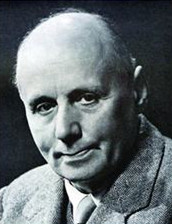What if You Cannot Read?
Issue date:2019-05-07About the speaker: Lilo is from Amsterdam, Netherlands. She has one quality which has been central to her identity and approach to the world: she is dyslexic. Since birth, she has been part of a study to measure the cause and effects of this neurobiological disorder. In her talk, she explored how dyslexia has forced people throughout history to think outside of the box and push boundaries to be innovators.
Albert Einstein changed the world's perspective of the universe, Henry Ford revolutionized the car industry, Walt Disney revolutionized animation, Agatha Christie one of the world’s most famous writers in history, Thomas Edison who lights up this theatre, and so many others, they all have something in common.
You would probably think they are alike because they changed the world. However, that's not all.
Okay, so what do these have in common except changing the world? They did something new; something no-one thought of before, they did things differently, why? Because they could not do it the usual way. Because all of these people were dyslexic.
They were all unable to read or write in the usual way so they had to find new strategies and they learned to apply this to their work.
So why am I telling you this?
Because I never thought I would ever stand here or at any secondary school after turning 16, I could not spell my name until I was 13.
I was officially diagnosed with dyslexia when I was seven. However, I have been part of a very long lasting dyslexia research-project of three Dutch Universities since I was ten months old. The last promotion based on this project was in January of this year. I have been part of this research almost my entire life.

The researchers looked for kids who had a higher chance of getting dyslexia because one or more of their parents had the diagnosis. Because my dad has a very heavy form of dyslexia, I was put in this research as part of the risk group. They did this so early to determine symptoms of dyslexia at a very young age and to find more about how a dyslectic brain develops. After six years of being in this research, they officially concluded that I have a very heavy form of dyslexia, if you would scale it I have like a 9 out of 10.
But I was very lucky that I knew that from such a young age, because I was never held back from learning. I knew that my brain was just a little different so I had to do things differently.
I was never discouraged from reading, I absolutely love books, it just took me a lot longer to read them, and because I was born in the 21 century I can now listen to as many books as I want on my phone. I can’t read subtitles so I just had to teach myself English from listening and watching movies instead of textbooks. I always did things differently, and the world around me made that possible for me. It makes it possible for me to stand here today.
But what could have held me back? What is dyslexia?
The official explanation is: Dyslexia is a learning disorder that involves difficulty in reading due to problems identifying speech sounds and learning how they relate to letters and words (decoding). Dyslexia affects areas of the brain that process language.
So let me explain this a bit more clear, Dyslexia is a disorder that you are born with it biological, it is just how our brain works, so it will always stay, and there is no cure. And 10-20% of the world's population has a form of dyslexia.
People with dyslexia don’t see things differently, they process it differently.
But to let you understand a small part of what dyslexia would feel like:

This is a simulation made for non-dyslexics to stimulate the frustration. But this could be one person's dyslexia, but someone else could have something completely different.
Dyslexia comes in all shapes and forms. It is a spectrum: someone may only have difficulty reading while others also have problems with spelling or distinguishing left from right. So one person’s dyslexia could vary quite a bit from another. There are a lot of symptoms of dyslexia like bad handwriting, difficulty remembering words, names, colors, numbers, difficulty pronouncing words, problems with telling time. So it isn’t only words and letters like most people think.
This is as far as we know caused by the Cerebrum not fully working.
In a non-dyslexic brain:
The Cerebrum is like a library that stores all your words. It's like perfectly organized all books on alphabetic order, which makes your mind recognize words at lightning speed!
Now you have to think that this library in a dyslexic brain has burned down, only one little part is there and it is a mess, it takes a dyslectic reader three times the energy a non-dyslectic takes to find these same words.
Knowing that dyslexics use different portions of their brains to read is interesting, but it doesn’t explain why these sections of the brain used for reading are less efficient in dyslexic people.
The truth is that there is still a lot that is not known about dyslexia, like why the brain only uses the front part, what causes it, why a dyslexic people have one area of their left hemisphere larger than the same area on the right side of their brain, and what that is used for.
That bigger hemisphere makes the brain physically bigger.
So there is clearly enough evidence that dyslexia actually exists, but it is still not recognized everywhere. Certain people still don’t believe it exists they say: it's just an excuse, and it is sometimes even seen as a curse.
This is of course extremely harmful because it discourages the dyslexics to learn and makes them believe that they are just stupid. And what if they would have believed that they are just that. Stupid? Why would they even try to use their abilities?
Where would the world be without the people that stepped out of the system by using their abilities? They are being put in school systems that don’t apply to them. They are being put in these boxes where they don’t fit in, like a children’s toy. You have the square, and you are trying to push it into the circle, pushing and pushing until all the sides are off and yes it may fit through, but the corners get scratched off and that we will never be the best fit in this circle formed society, because the eventual part that once made it a square is gone.
And this pushing takes so much energy, but the world around them tells us that we are lazy and if we would only work a little harder we can eventually do it. Or we get told that we are just stupid that we will never be something and if we believe that why would we even try? The high school dropout rate for people with dyslexia is 35%! That is more than one-third of all people with dyslexia. The heavier the dyslexia, the higher the chance of not completing high school education.
And if we do pursue education above primary school we soon find out that even if you are wonderful at Sciences, Humanities, Art, you will never get good grades for it because in most schools it doesn’t matter if you understand the material, if you can make great art, or if you even think of entirely new equations, it matters if you can write a well-structured essay about it, it matters if you read the question right, if you spell the word just right. And you end up struggling to find a way under institutions that don’t support your differences.
This makes us hate school but most importantly ourselves. Dyslexic people have strongly increased risk of getting depression.
They try different approaches to feeling happy, so they reach out to chemical happiness, drugs. 40% of adults seeking treatment for substance abuse in us have a form of dyslexia. Keep in mind that dyslexia only affects 10-20% of the population.
And the people who dropped out have a big chance of ending up on the streets and then get into crime. But some take a path that is different from crime and addiction. They know that they are not stupid; they fight!
That is why they took matters into their own hands.

60% of self-made millionaires have dyslexia. The dyslexic’s abilities have been recognized by NASA (North American Space Administration) and over 50% of NASA employees are reported as dyslexic. They are said to be deliberately sought after because they have superb problem-solving skills and excellent 3D and spatial awareness. And all those world changes from before are dyslexic.
They are changing this world they make this world lovable for all of us dyslexic or not. They are making and solving their puzzles, innovating computer tech from scratch, and then they make those computers write down what you say and read what you write. They make programs that let books that read themselves and other innovations they change this world by doing things a different way. They connect them in a different way to get the results in their way.
Like one of the most famous dyslexics once said:
“You cannot connect the dots looking forward, you can only connect them looking backward. So you have to trust that the dots will somehow connect in your future.”
—— Steve Jobs
Whatever the way you do something, how you connect the dots, doesn’t matter in the long run. Thinking outside these or maybe—this set path of dots is what got us where we are today. Let's cheer for that, let ’s change the way we are allowed to believe, let people break the rules, let them connect the dots a different way.










